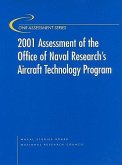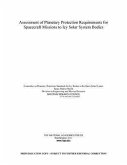Knowledge of time is essential to precise knowledge of location, and for this reason the Navy, with its need to navigate on the high seas, has historically played an important role in the development and application of advanced time realization and dissemination technologies. Discoveries coming from basic research funded by the Office of Naval Research (ONR) lie at the heart of today's highest performance atomic clocks, Naval Research Laboratory (NRL) expertise played a role in developing the space-qualified atomic clocks that enable the Global Positioning System (GPS), and the U.S. Naval Observatory (USNO) maintains and disseminates the standard of time for all of the Department of Defense (DOD). The Navy has made major investments in most aspects of precision time and time interval (PTTI) science and technology, although specific PTTI-related research has also been funded by the Defense Advanced Research Projects Agency (DARPA) and non-DOD agencies such as the National Science Foundation (NSF), the National Aeronautics and Space Administration (NASA), and the Department of Commerce. Navy funding, largely through ONR, has a history of being an early enabler of key new developments. Judicious funding decisions by the Navy--particularly by ONR program officers--have underpinned most of the major advances in PTTI science and technology (S&T) in the last 50 years. PTTI is important to modern naval needs, and indeed to all the armed Services, for use in both navigation and communications. Precise time synchronization is needed to efficiently determine the start of a code sequence in secure communications, to perform navigation, and to locate the position of signal emitters. Precise frequency control is required in communications for spectrum utilization and frequency-hopped spread-spectrum techniques. There are many examples of essential military operations that depend on PTTI and could benefit from improvements in PTTI technology. These include: -GPS clocks and autonomous operations, -Weapon system four-dimensional coordination, -GPS antijamming, -Network-centric warfare, and -Secure military communications. This report summarizes that reductions in the size, weight, and power requirements and increases in the ruggedness of PTTI devices without sacrificing performance would put more accurate and precise timekeeping in the hands of the warrior, improving capabilities in all of the above operations.
Hinweis: Dieser Artikel kann nur an eine deutsche Lieferadresse ausgeliefert werden.
Hinweis: Dieser Artikel kann nur an eine deutsche Lieferadresse ausgeliefert werden.








